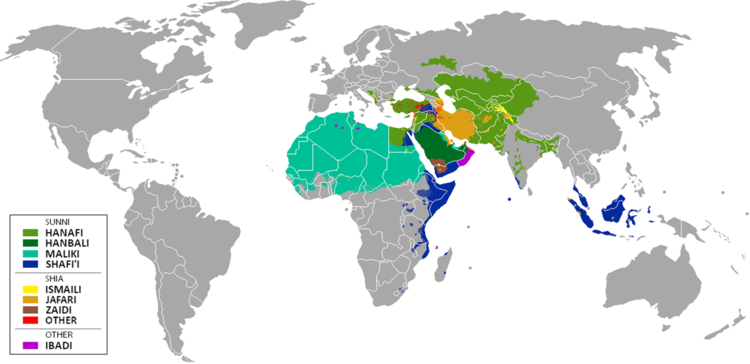Top Sunni Muslims Population in the World by Country
Sunni Muslims are the largest branch within Islam, comprising the majority of the Muslim population globally. The term "Sunni" comes from the Arabic word "Ahl al-Sunnah wa al-Jama'ah," which means "People of the Tradition and the Community." Sunni Muslims adhere to the teachings and practices of the Prophet Muhammad, as recorded in the Quran (the holy book of Islam) and the Hadith (recorded sayings and actions of the Prophet).
Key beliefs and practices of Sunni Muslims include:
The Quran: Sunnis believe that the Quran is the ultimate source of guidance and the word of God as revealed to Muhammad. They follow its teachings in all aspects of life.
The Hadith: Sunnis also follow the Hadith, which are collections of sayings and actions of the Prophet Muhammad. These provide additional guidance on how to live a righteous and Islamic life.
Five Pillars of Islam: Like all Muslims, Sunnis adhere to the Five Pillars of Islam, which are the fundamental acts of worship and practice. These pillars are the declaration of faith (Shahada), prayer (Salah), fasting during the month of Ramadan (Sawm), almsgiving (Zakat), and pilgrimage to Mecca (Hajj) for those who are able.
Scholarly Interpretation: Sunni Islam has a tradition of scholarly interpretation of religious texts and teachings. Various schools of thought, such as Hanafi, Maliki, Shafi'i, and Hanbali, have developed over time, each with their own perspectives on legal and theological matters.
Ijma' and Qiyas: Sunni scholars use consensus (ijma') among the community's scholars and analogical reasoning (qiyas) to derive legal rulings in situations not directly addressed in the Quran or Hadith.
Open Interpretation: Sunni Islam generally allows a more flexible approach to interpreting religious texts compared to other branches of Islam. This flexibility allows for adaptation to different cultural contexts and changing circumstances.
It's important to note that while Sunni Muslims share common beliefs and practices, there can be a diversity of opinions and interpretations within the Sunni tradition. Additionally, Sunni Islam should not be confused with Shia Islam, another major branch of Islam, which differs in terms of its beliefs about leadership and the succession of authority after the Prophet Muhammad.
Sunni Islam's core focus is on following the Quran and the authentic traditions of the Prophet Muhammad while emphasizing unity within the broader Muslim community.

